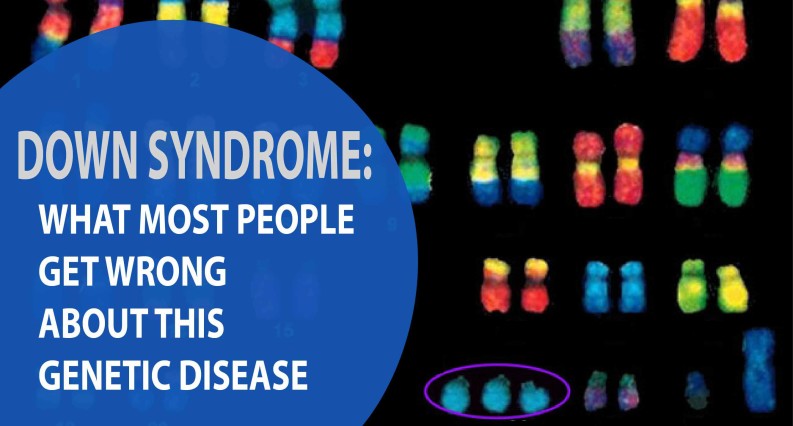Down syndrome is the epitome of genetic disease. Not many genetic diseases are as well defined as Down syndrome. Because of that, many parents of Down syndrome children were told by their doctors, “Your child has Down syndrome. What do you expect? Live with it.”
I’m not your conventional doctor. However, when a friend suggested that the neuro-developmental work we do for kids with learning disabilities, ADHD, and Autism can also benefit those with Down syndrome, I originally thought that was not possible. It’s genetic.
Oh, how was I wrong.
Forget About The Disease
Down syndrome children have some very specific needs. Because of an extra set of genes, it renders them more susceptible to learning difficulties, memory issues, premature aging and other physical anomalies. So forget about the disease, and ask, what can we do for the person? It turns out that there is a lot that can be done to make a Down syndrome child more functional and enjoy a better quality of life.
When the right interventions are given at the right time, parents see tremendous potential being unleashed from these children. Scroll down to watch videos of Gryffin reading Chinese characters and working the monkey bars without assistance!
I’d like to share a few innovative interventions from a recent conference:
- Daily antioxidant supplements (500mg vitamin E and 400mg vitamin C) keep the oxidative stress down even 6 months after stopping.
Note: Oxidative stress is cell damage due to the oxidative process. In other words, your body “rusts” as it goes through life, and this is particularly evidenced in Down syndrome children.
- Prenatal choline supplementation was shown to be an effective strategy for improving the baby’s cognitive function and reducing risk of dementia.
- Green tea decreases certain unfavorable genetic expressions and, as a result, improves cognitive function.
- Omega 3 and curcumin may reduce certain unwanted genetic expressions to reduce mental challenges, and possibly decrease the risk of early onset Alzheimer’s disease and heart defects.
Beyond Supplementation
As you have probably noticed, a huge focus of innovative interventions for Down syndrome children is on their brain development.
While supplementation is quite important, it’s only part of the answer. The brain needs three things to survive—oxygen, nutrients, and stimulation.
Sensory stimulations and primitive movements are what shape a child’s brain. Fundamental pathways are established as a child explores the world. If sensory integration is abnormal, it is a safe bet that the child would not develop the proper motor skills needed. For instance, if one cannot differentiate sounds correctly, than speaking a language will be a problem.
When it comes to re-educating the brain of children with developmental challenges, here’s some rules of thumb:
- If primitive reflexes are present, it must be addressed.
- Movements must be slow and purposeful.
- Low intensity short duration high frequency training is better tolerated than high intensity training.
References:
- http://www.ncbi.nlm.nih.gov/pubmed/24685938
- http://www.ncbi.nlm.nih.gov/pubmed/22411251
- http://www.ncbi.nlm.nih.gov/pubmed/22549509
- http://www.ncbi.nlm.nih.gov/pubmed/24039182
- http://www.ncbi.nlm.nih.gov/pubmed/25799055
About the Author
Dr. Lily Semrow is a Board Certified Chiropractic Neurologist who focuses on Neuro-Structural Correction. She has a B.S. in Nutrition and a doctorate in Chiropractic. She has a passion for serving families, and helping people who could not get better through traditional and alternative means.

